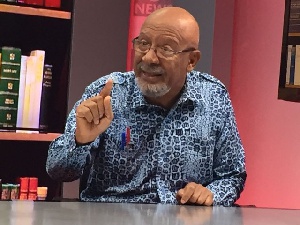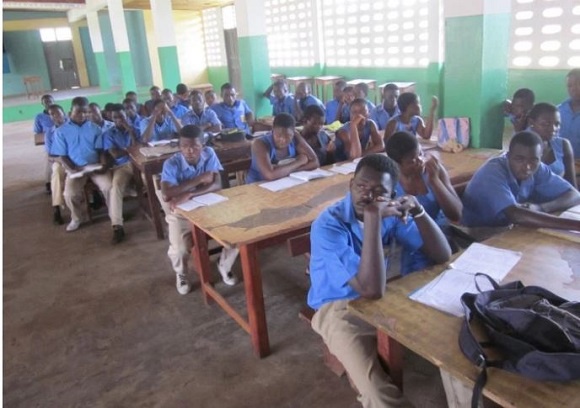 Anis Haffar is an Educationist
Anis Haffar is an Educationist
Time flies! Today’s column marks a score of 305 (Three hundred and five) articles in the Daily Graphic since I started counting from March 11, 1998: that is, a span of twenty glorious years come next year, 2018. To think a good half of Ghana’s present population was not born at the start of this journey! I’m quite grateful to the Almighty God for the health, stamina and the means to provide this service to a country I appreciate and love so much.
The plight of the African child
Why do I continue to write? As this column has shown week after week, year after year, I’m concerned about the plight of the African child and the African youth, including particularly the Ghanaian child and the Ghanaian youth. To think that in this day and age, many public basic schools in this country still do not have decent food for children, water to wash their hands, or toilet paper to clean themselves with. To think that even in the regional capitals: Accra, Kumasi, Takoradi, and so on – while chiefs and big officials preen themselves in luxury cars – children still eat in the dust, play in the dust, sit in dusty classrooms where dirt blows freely into their faces, books, desks and cupboards. How long must such apathetic irresponsible behaviours and depravity continue?
The irony is that big people and so called leaders who should know better are ever more concerned about the dead, and splurge abundantly for burials than provide the bare necessities for the children in their communities! It makes no sense whatsoever. Goodness; is this the independence Kwame Nkrumah fought for, for Ghana and Africa? How can any nation ever be respected – both at home and abroad – when they display such crude disregard for their own children?
The MPs must lead
A piece headlined, “MPs condemn dehumanizing treatment at embassies” (Daily Graphic, October 26, 2017), said that Members of Parliament (MPs) worried about how “a lot of the visa applicants were treated with disrespect” at the various embassies in the country and that the Committee on Foreign Affairs of Parliament was tasked to visit the various embassies and present a report to Parliament.
How wonderful it would be if after this noble task our honourable MPs visited the schools in their own constituencies – the very schools under their purview – and present an honest report to Parliament on how the children fared under their watch! Won’t it be noble indeed if they “worried” enough to do something constructive to make the children’s lives more respectable?
The sense of helplessness
In many of the nation’s public schools, the children learn subconsciously that their lives can never be better; they learn mostly their own helplessness, that they can never be in control of their lives in meaningful ways, that life itself is stacked sky high against them, and that – like orphans – nobody cared for them.
But schools don’t have to be unpleasant; there’s ample evidence that education itself can be enjoyable, and that the environment of the schools can be aesthetically pleasing to the human soul. But tethered to an environment of defeat how can children foresee a balanced lifestyle in harmony with aspirational goals? Childhood experiences are the key factors determining how a person will advance in later years.

Before I started this piece, a friend sent me a whatsapp video of decaying dead bodies of Africans washed ashore and sprawled somewhere along the Mediterranean coast. A team had been sent to the area with body bags, gloves and nose masks to scoop away the corpses.
So why do I write? Are Africa’s leaders intentional in neglecting to empathize with the plight of the youth who cross the perilous Sahara Desert, and cross the daunting seas for a better life in places where they are clearly not wanted?
Is it naïve to expect that the right sort of education for employment and a nobler life can lessen the pain and anguish that so many Africans face on the continent? Are the leaders opposed in mind and spirit to properly educate their own people? Don’t Africa’s leaders squirm in their designer suits and flowing robes in international circles knowing darn well the negative prism through which the world perceived them?
A sense of purpose
So why do I write? Education must serve the critical purpose of moving Ghana out of the bondage of illiteracy, poverty, disease and cold blooded irresponsibility of the officials and the traditional leaders! But these are extraordinary times with extraordinary prospects, and the key educational outcomes must reflect the possibilities in the world we live in now.
That note must be posted in every government office, every lecture hall, every science laboratory, every classroom, and especially in the mindset of those who deliver education from the kindergarten to the tertiary levels.
I end with a quote from John Mensah Sarbah (1864 – 1910): “Every person and nation must work out his or its own salvation. And it is because I am of the opinion that suitable education and training will give a great impetus to our progress that I have endeavoured to do what I can”.
Email: anishaffar@gmail.com